The University of Macau (UM) adopts and develops different education models and approaches, such as interdisciplinary learning and innovative research, at undergraduate, master’s, and doctoral levels. In this article, we explore how UM’s educational strategies enable students to progress from a broad-based education to specialised expertise, equipping them with the competencies needed to succeed in their chosen path. In addition, three students at different educational levels speak of the holistic education they received at UM and the robust support they received for their studies and research in their respective disciplines.
Focusing on holistic development in undergraduate education
For undergraduate education, UM fosters the whole-person development of students by adopting a ‘4-in-1’ collaborative education model, which consists of discipline-specific education, general education, research and internship education, and community and peer education. The residential college (RC) system works in collaboration with faculty teaching to foster learning inside and outside the classroom, which provides undergraduates with an all-round and diversified experiential learning environment conducive to their holistic development.
Complementing the formal curricula and classroom activities, the RC system provides students with a unique experiential learning opportunity. To date, the university has ten residential colleges, which account for about one-fifth of the campus area. Each RC houses around 500 students from different disciplines, different years of study, and distinct cultural and linguistic backgrounds. Students can learn from one another in this multidisciplinary and multicultural environment for both academic and personal growth. Serving as a learning platform for community and peer education and knowledge integration, the RCs can also be regarded as the starting point of students’ holistic development.
To ensure that each RC accommodates a vibrant composition of students with diverse backgrounds, all freshmen are randomly assigned to an RC each year to create an environment where everyone contributes to each other’s growth. In the 2023/2024 academic year, more than 1,900 undergraduate students started a new learning journey at UM and joined the big RC family. After graduating from Chan Sui Ki Perpetual Help College, a secondary school in Macao, Kevin Cheong was admitted to UM with excellent admission examination results and was awarded the Golden Lotus Scholarship. Kevin now has two roles at UM—a first-year student majoring in mathematics, and a residential student of Moon Chun Memorial College.
In the ‘4-in-1’ collaborative education model, the faculties encourage students to move beyond their specific fields of knowledge and integrate discipline-specific education with general education. The faculties also create innovative learning environments that reach beyond conventional classroom settings through research and internship education. The hope is that students will not only learn the knowledge and skills gained in their respective academic studies, but will also be familiar with other disciplines and be able to apply their knowledge to social issues. Meanwhile, the RCs enable students to serve the community, participate in a variety of cultural activities, and cooperate with students from different disciplines and backgrounds. Students can also learn from their college peers in different faculties and departments for academic advice and life insights. Under this model, students not only develop soft skills beyond their academic studies, but also gain a clear understanding of the competencies they need for their future development, so that they can use their time at the university to improve themselves.
Currently, Kevin has set his initial study goals for his four years at UM, with the aim of becoming a T-shaped person who stands tall in the workplace. The vertical stroke in ‘T’ means professional skills and specialised knowledge, while the horizontal stroke represents transferable skills for purposes such as interpersonal communication, technology application, problem-solving, and innovation. ‘The university provides me with a resourceful learning environment. I plan to acquire interdisciplinary knowledge and develop skills in programming, data analysis, interpersonal communication, and education during my time at UM, so that I can think beyond mathematics.’
Nurturing top talent through interdisciplinary integration
Postgraduate students are future talent required by all industries, and they must acquire multidisciplinary knowledge and skills in order to solve complex real-world problems. In light of this, UM places great importance on the implementation of interdisciplinary integration at the postgraduate level. As an international comprehensive university, UM offers degree programmes in a wide range of disciplines, which is conducive to interdisciplinary integration at the master’s and doctoral levels. The university also adopts the ‘P.I.C.K.’ strategy, which consists of ‘problem orientation’, ‘interdisciplinary interaction’, ‘collaborative innovation’, and ‘knowledge application’, to promote students’ pursuit of innovative research.
Master’s study is the stage where students develop their expertise. With a focus on ‘interdisciplinary integration’ in talent development, UM adopts interdisciplinary approaches in its master’s programmes to nurture talent that meets the development needs of the economy and society. To this end, the Institute of Collaborative Innovation has established three research centres for cognitive and brain sciences, data science, and artificial intelligence and robotics. The goal is to integrate the humanities and social sciences with science and technology and to enhance interdisciplinary education and research. For example, UM’s Master of Science in Data Science programmes, launched in recent years, are linked to several fields, such as computational linguistics, data strategy and compliance, financial technology, and smart governance, to position students at the forefront of education and broaden their skills to meet future industry needs.
UM continuously enhances its cutting-edge academic offerings and disciplinary design, attracting many outstanding students from home and abroad. In the 2023/2024 academic year, the university admitted 2,500 new postgraduate students. Natalia Chan, who received her bachelor’s degree in life sciences from the University of Toronto with a double major in cell and systems biology and neuroscience, is currently in her second year of the master’s programme in data science, with a focus on precision medicine. She plans to continue her studies at UM and enrol in an interdisciplinary master’s programme in cognitive neuroscience.
Chan holds UM’s educational environment in high regard. She adds, ‘During my studies of data science, I had the opportunity to take part in a research project led by Prof Yuan Zhen at the Centre for Cognitive and Brain Sciences. The centre serves as a platform for interdisciplinary learning, and the professors and my colleagues are very friendly and helpful. Those who have ideas can receive support from the centre and bring their visions to life. I think this is the strength of UM.’
Assisting doctoral students in developing products through collaborative innovation
Doctoral studies represent the highest level of university education and are instrumental in advancing knowledge innovation and social progress. In view of this, UM emphasises the concept of ‘collaborative innovation’, which means having the university join hands with research institutes, businesses, governments, and users to pursue cutting-edge research and technological innovation for the benefit of society. The university’s ‘P.I.C.K.’ strategy is therefore designed to break down disciplinary barriers and stimulate doctoral students’ innovative thinking. Focusing on a particular research topic, students apply research methods and skills, utilise interdisciplinary knowledge and methodologies, and pursue research innovation, ultimately generating new knowledge for society.
Sou Wai Kit is a post-doctoral researcher who obtained his PhD in April of this year. During his PhD studies, Sou developed a new power quality compensation device and its control strategy, which can save energy by removing reactive power and harmonics in the electrical grid and appliances. In 2022, he was awarded the Scientific and Technological R&D Award for Postgraduates by the Science and Technology Development Fund of the Macao SAR. The device is currently undergoing tests in a factory in the Guangdong-Hong Kong-Macao Greater Bay Area and is poised to be used in Macao’s water plants. ‘Thanks to the support of UM, we have been able to turn our research results and patents into tangible products and leverage our strengths to support industry-academia collaboration in Macao,’ he says.
In addition, UM actively collaborates with institutions around the globe. These include the joint PhD programmes offered by the research institutes affiliated with the Chinese Academy of Sciences and renowned mainland institutions, which offer interdisciplinary and cross-regional education as well as opportunities to participate in research projects. Furthermore, UM adopts an innovative education model that features openness, collaboration, and resource sharing. This encourages faculties, departments, and doctoral students to capitalise on their respective strengths and complement each other, so as to elevate the quality and impact of their research results.
Adapting the education model to the times
Responding to the ever-evolving global higher education landscape, UM constantly adapts its education and talent development models to meet contemporary needs. With a commitment to interdisciplinary integration, the university seeks to break away from the traditional academic arrangement in order to nurture high-calibre talent at all levels and contribute to Macao and the country.
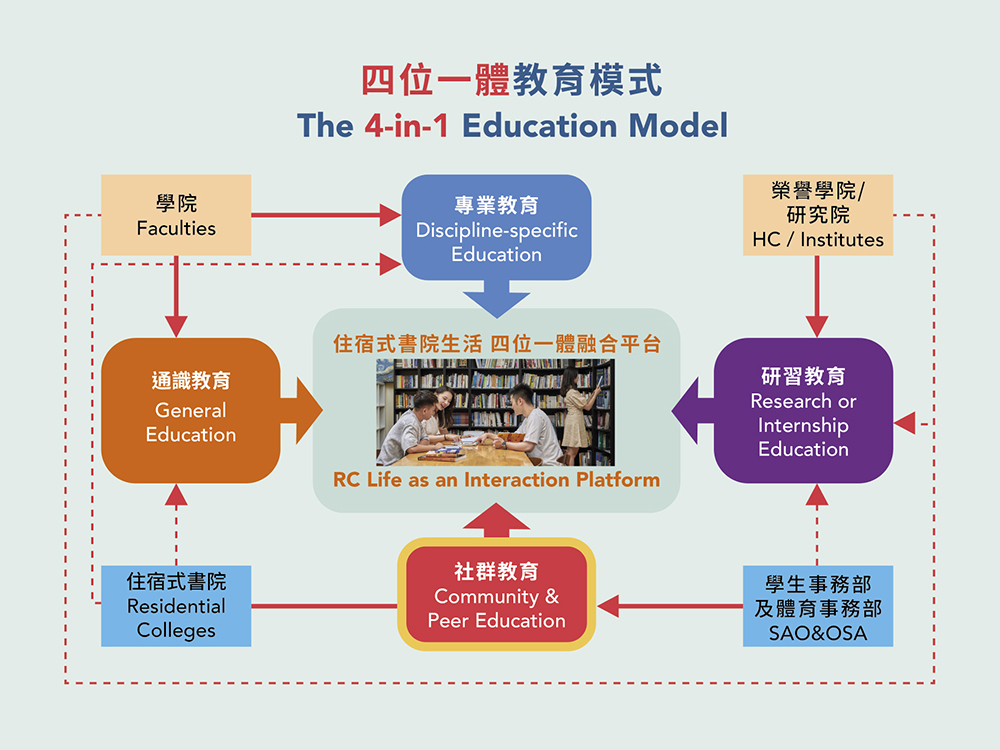
UM adopts a '4-in-1' collaborative education model
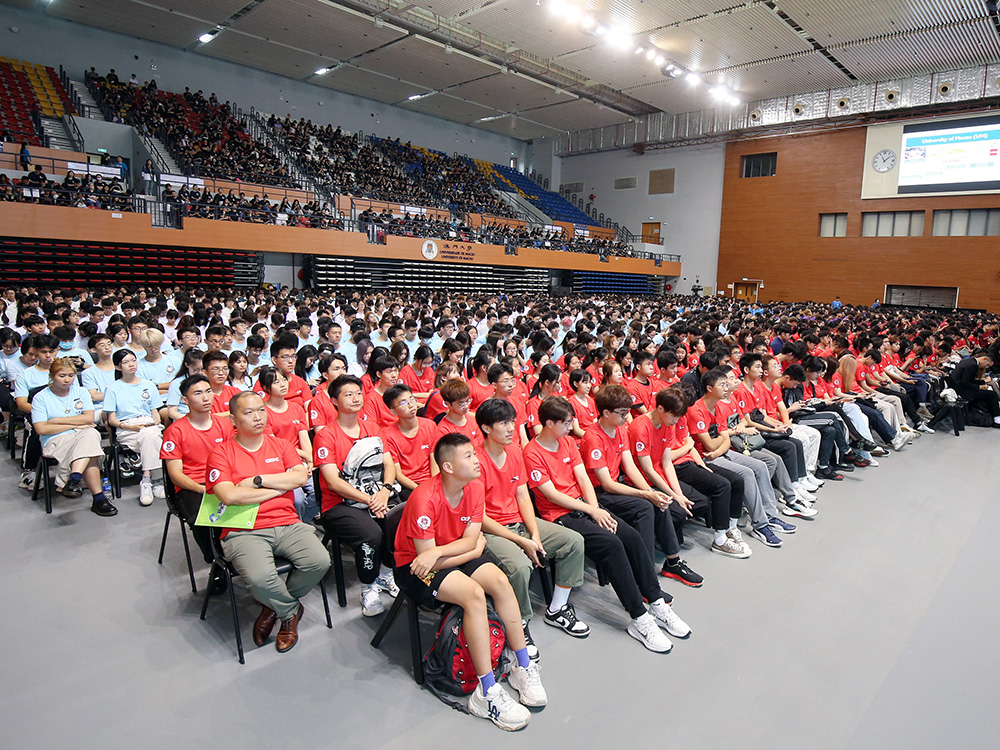
A total of 4,400 new undergraduate and postgraduate students embark on a new learning journey at UM
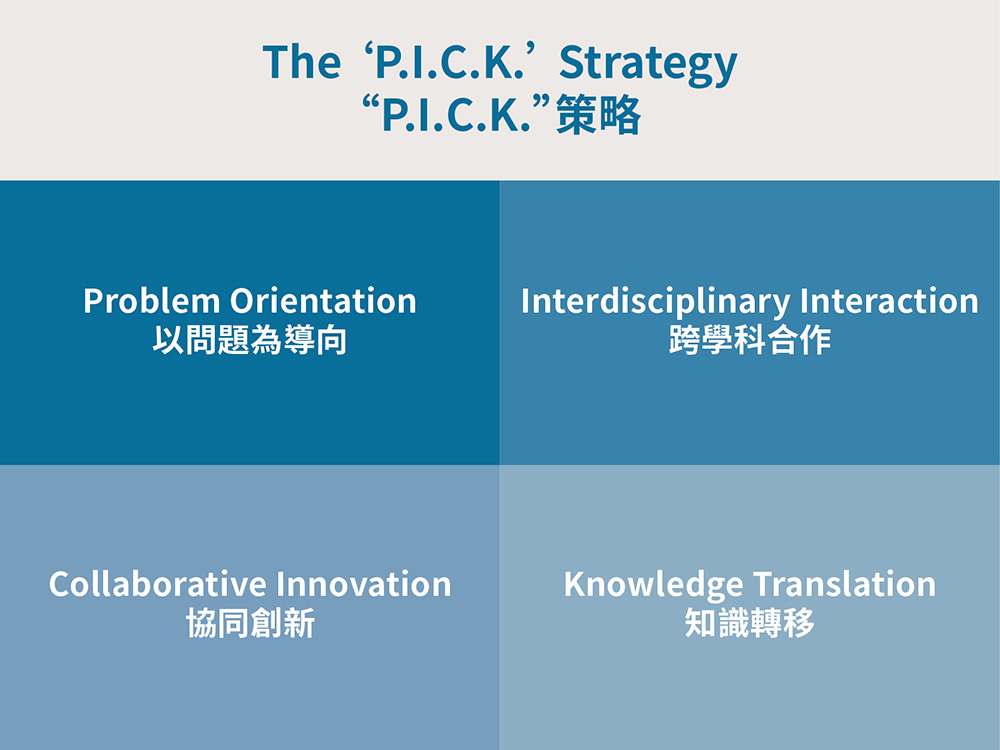
The 'P.I.C.K.' strategy at UM encourages students' pursuit of research innovations
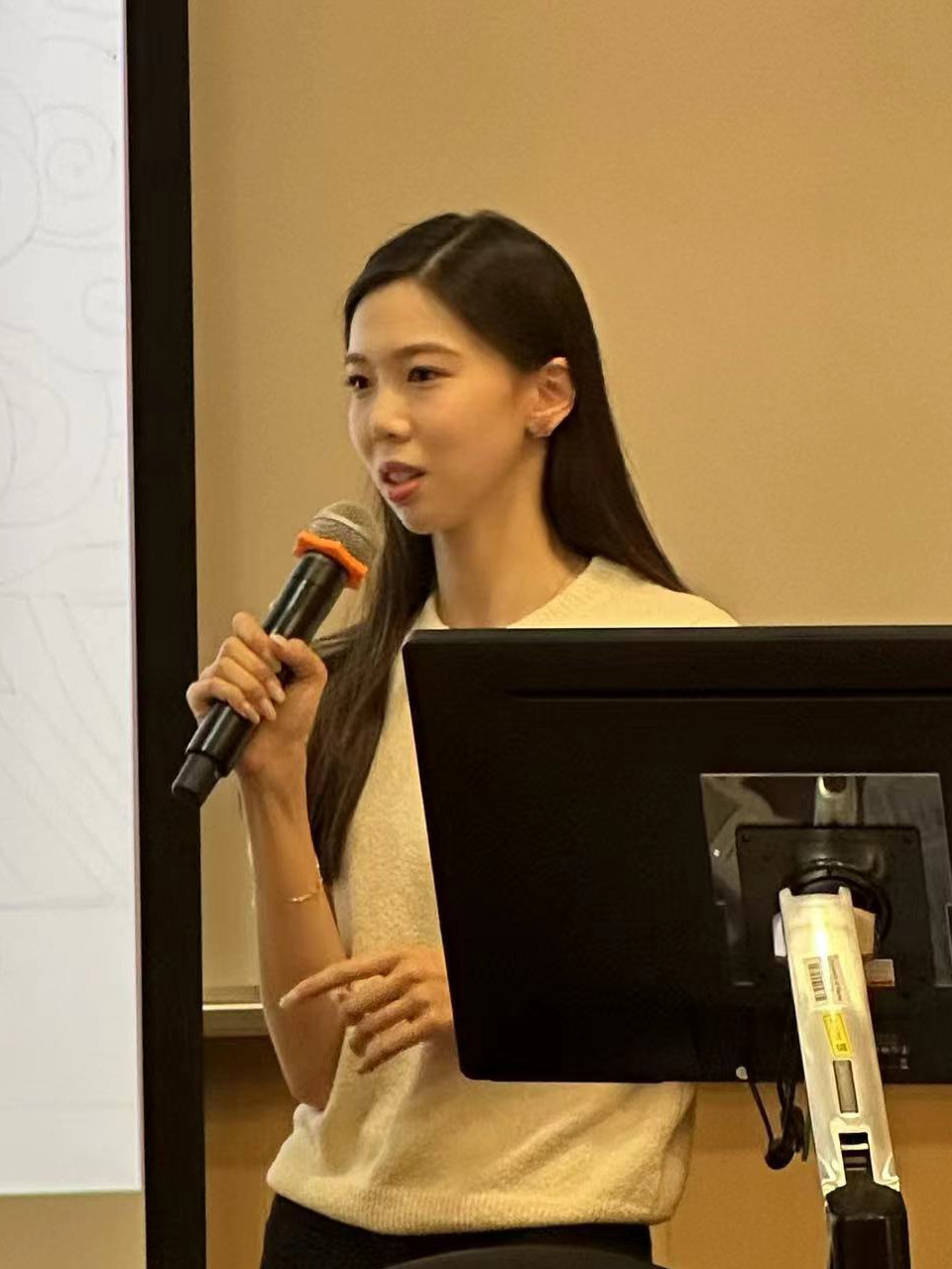
Natalia Chan
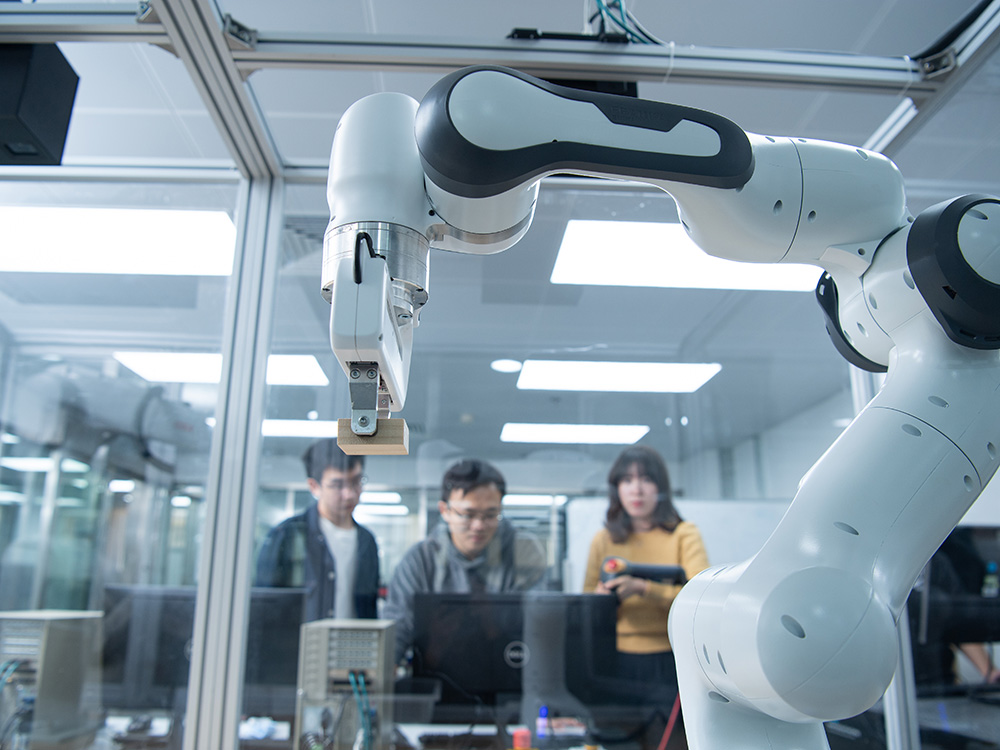
UM supports its postgraduate students in generating new knowledge and research outcomes
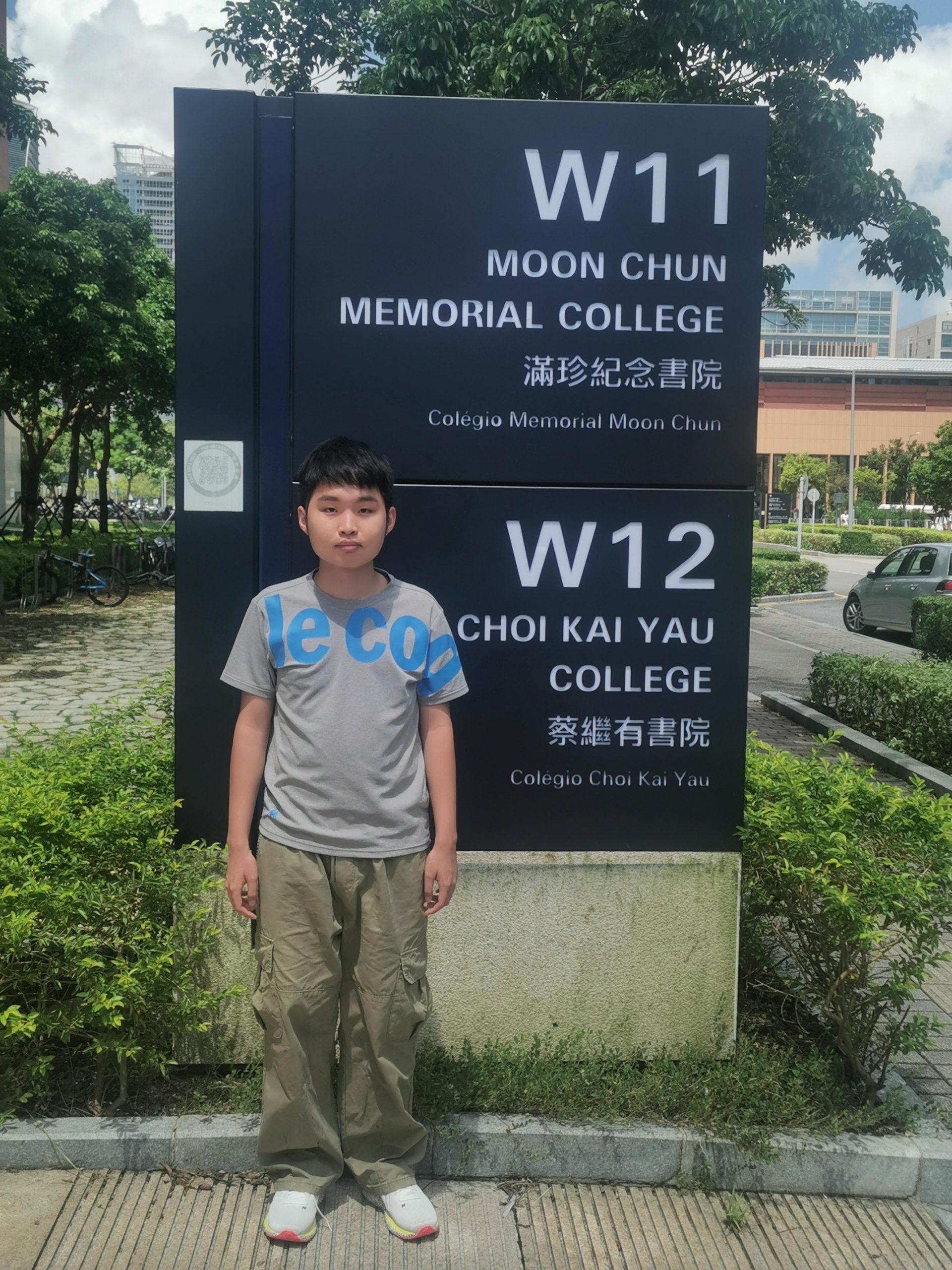
Kevin Cheong
